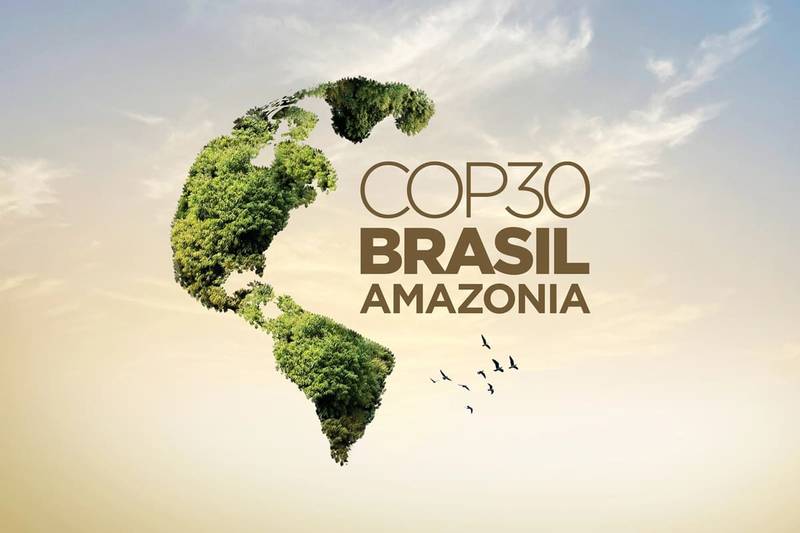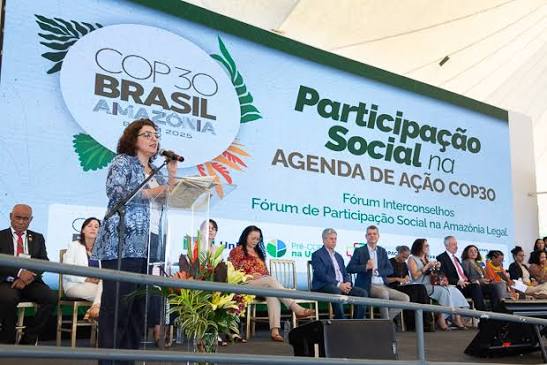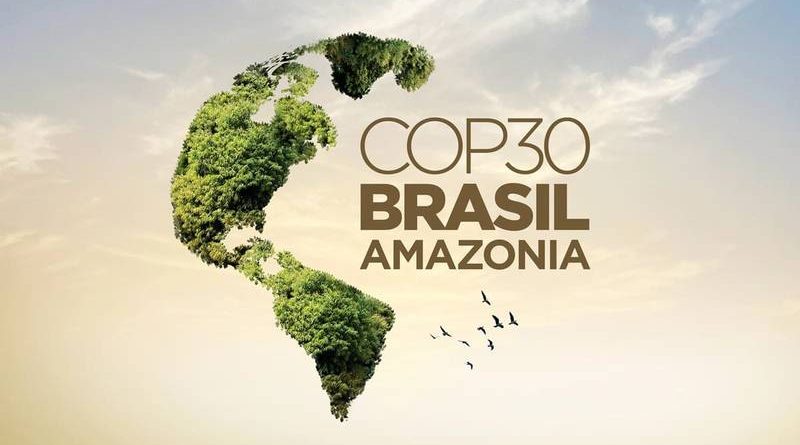Metro Lens Editor in Brazil to Cover COP30 as Ghana Stakes Its Climate Claims
By Metro Lens staff
Baffour Boamah Darko — known in media circles as Isaac Boamah Darko and also the Mawerehene of Akyem Adadientam — has arrived in Brazil to report on the COP30 climate negotiations, Metro Lens has confirmed. The managing editor of the Ghana-based daily landed at Johannesburg’s OR Tambo Airport on Sunday before continuing to São Paulo on Monday. Because of limited local flight options from São Paulo to Belém, he is scheduled to depart São Paulo on Thursday, November 13, for Recife and will transit onward to Belém on Friday.

Darko is no stranger to global reporting on multilateral forums. He covered COP29 in Azerbaijan in 2024 and reported from New York in September 2025 during the 80th session of the United Nations General Assembly (UNGA 80). Metro Lens says he will provide on-the-ground coverage of negotiations and side events at COP30, with particular attention to how outcomes will affect Ghana and other vulnerable nations.
COP30: Amazon backdrop, urgent stakes
COP30 is being held in Belém, in Brazil’s northern Amazon region, drawing international focus to the twin challenges of climate change and tropical forest protection. Delegates, scientists, civil society representatives, and business leaders are meeting under mounting pressure to accelerate emission reductions, scale up adaptation financing, operationalize loss-and-damage mechanisms, and halt deforestation — themes that have direct implications for Ghana.

For countries across Africa, including Ghana, COP30 presents a critical opportunity to press for concrete commitments on finance, technology transfer, and capacity-building. Smallholder agriculture, coastal communities, and forested landscapes in Ghana are already experiencing climate impacts that threaten livelihoods, food security, and infrastructure.
How COP30 decisions could matter for Ghana
Ghana is particularly vulnerable to climate change. Key concerns likely to be in focus for Ghanaian delegates and civil-society observers at COP30 include:

• Public health and climate impacts: Climate change is altering disease patterns and environmental health conditions, affecting access to health services. Ghanaian institutions, including the Ministry of Health and the National Health Insurance Authority (NHIA), are seeking knowledge sharing and collaborative approaches to integrate climate resilience into health systems.
• Adaptation finance: Coastal erosion, seasonal flooding, and shifting rainfall patterns have harmed agriculture and fisheries. Ghanaian delegates are expected to press for scaled-up, predictable adaptation funding to support climate-resilient infrastructure, early-warning systems, and climate-smart agriculture.
• Loss and damage: Following global recognition of loss-and-damage as a distinct finance stream in recent COP cycles, many developing countries are calling for its quicker operationalization and predictable financing. Ghanaian stakeholders are advocating for access to support to address climate-driven losses — from damaged homes and infrastructure to long-term agricultural losses.
• Agriculture, cocoa, and food security: Cocoa is central to Ghana’s economy and rural livelihoods. Climate impacts, pests, and diseases threaten production. Calls at COP30 for investment in resilient agricultural practices, agroforestry, and research and development are vital for Ghana’s cocoa sector and broader food security.
• Forests and land use: While COP30’s Amazon setting highlights tropical forest protection, Ghana faces deforestation pressures from agriculture, mining, and illegal logging. Ghanaian policymakers and partners will be watching for finance mechanisms — including safeguards and incentives for sustainable land management and REDD+/nature-based solutions — that can be adapted for West African contexts.
• Energy and just transition: Ghana’s growing energy needs, recent oil and gas production, and efforts to expand renewables create pressure to pursue a fair, equitable transition. At COP30, Ghanaian delegates are expected to stress the need for technology transfer, financing for renewable-energy projects, and measures to protect workers and communities during transitions away from fossil fuels.
• Climate finance and debt: Like many developing economies, Ghana faces fiscal constraints. Delegates and finance ministers will monitor discussions on concessional finance, innovative instruments (such as debt-for-climate swaps), and mechanisms that reduce the cost of borrowing while funding climate action.
Opportunities for Metro Lens and Ghanaian stakeholders
Metro Lens participation will provide an opportunity to:
• Gather insights and best practices on integrating climate resilience into national health systems.
• Produce media content that highlights the Ghana’s commitment to health sustainability and environmental responsibility.
• Showcase Ghana’s progress in promoting universal health coverage within the broader context of climate change adaptation.Ghanaian civil society, youth and private sector voices
COP30 is also a platform for Ghanaian civil-society organizations, youth activists, and private-sector actors to engage in side events and bilateral meetings. Ghanaian groups have campaigned for stronger safeguards on carbon markets, greater participation by local communities in decision-making, and incentives for sustainable value chains. The private sector is watching for investment signals on renewables, green infrastructure, and climate-smart agriculture.

Metro Lens coverage
Metro Lens said Darko will file reports from the conference floor and from side events, focusing on how negotiations on finance, loss and damage, forests, and energy will affect Ghana’s priorities. His reporting has combined on-the-ground coverage with interviews and analysis from multilateral negotiators and national delegates at previous global fora.
Darko’s planned arrival in Belém on Friday will place Metro Lens among the Ghanaian and African media contingent covering a summit closely watched for outcomes that could shape climate policy and financing for years to come. Metro Lens will publish updates and analyses from the negotiations as they unfold.

